United Arab Emirates -

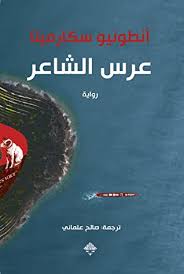
After the death of his father, Geronimo Frank, the scion of a wealthy Austrian banking family, decides to break from his family's traditions and move to live on a small island in the Adriatic Islands, and to reopen the large store there. Despite the tragic legend associated with the marriage of the previous store owner, which befell the new owner, He succeeds in preparing for marriage to the most beautiful girl on the island, Alia Aymar. During the preparation for this legendary wedding, Rino Kubita, the young revolutionary and son of the island's popular hero, becomes aware of the existence of arrangements for an Austrian invasion of this island, so he organizes a resistance squad to kill the invading soldiers. Between the preparations for the wedding of the century, as described by the islanders, and the fluctuating feelings of Alia Emar, who loves music, and the anticipation of some of the islanders for the retaliatory invasion of the dead soldiers, Scarmita narrates in his charming and sarcastic style about the preparation of an entire continent for world war, and about a strange asylum journey to the safe paradise, Chile.
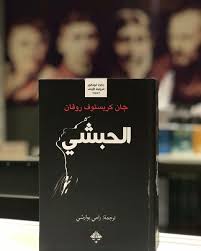
In the late seventeenth century, Poncet, a French herbalist, travels; To live in Cairo, one of the centers of an unusual alliance between the Ottoman Sultanate and one of the European kingdoms: France. Although he works in secret, Because he does not have a legal certificate, his fame reaches the French consul, in whom he finds the ideal person to lead a secret embassy from the French king to the Negus, King of Abyssinia, whose declared mission is to treat the Negus, while it seeks to restore French-Catholic control over Abyssinia, in a time of religious and expansionist conflicts. Which the European kingdoms are fighting among themselves. Poncet soon discovers that the exceptional circumstances of his journey to achieve the goals of the King of France and the Pope are - alone - the solution to the exceptional obstacles that separate him from the one he loves. In his work, which won the Goncourt Prize for First Novel and the Mediterranean Prize, Ruffin does not content himself with presenting historical facts, but rather takes us with him on a journey full of life between the neighborhoods of Cairo, the mountains of Abyssinia, and the palaces of France. To tell an exciting adventure about love, friendship, and sacrifice in an era full of conflicts, conspiracies, and betrayals.
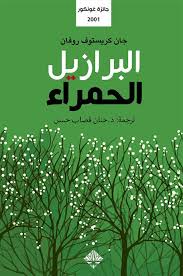
The most amazing thing about this story is that it is true! Not only because of the strangeness of its events, as the Renaissance era is rich in wondrous adventures, but the reason for its strangeness is the almost complete forgetting of it. The two orphan children: Ghost and Columb are deceived; To participate in a colonial mission to explore the new world, as it is their only hope of meeting their father, the disappeared knight. This forgotten expedition is led by Philoganion, a warrior returning from the Crusades, bringing with him a diverse team of soldiers, workers, engineers, as well as an unprecedented element; Children of orphan age, the age that allows them to learn new languages quickly enough; To work as translators with the indigenous people. On one of the most mysterious and exciting French campaigns of the Renaissance, and through the story of two orphans searching for hope and the human struggles they go through, in his book, which won the Goncourt Prize, Ruffin takes us on a captivating historical journey from the shores of France at the beginning of the era of religious unrest to Brazil with its red woods. To describe to us man's struggle with nature, and the first encounter between different civilizations, with the curiosity, fear, admiration, and passion it carries.
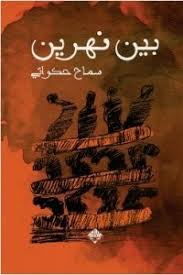
We are the generation of war, and our parents are the generation of defeat, and between them souls grew old, and the concepts of war and love became similar to them. Things are too big to tell, but I believe that a story alone is capable of creating a small homeland that we carry in our pocket, and that we talk about to our children who were born outside the homeland, and who carried its mark on their faces, tongues, and identities without seeing a stone in it. Only a story is sufficient to create the imaginary homeland in their minds alive. . This collection deals with stories from the lives of women who lived between two rivers. Between Syria and one of the asylum countries, it is concerned with the small details of these two lives, and the effects that the war had on the lives of these women: disappointment, loss, escape, and love. It is an attempt to overcome the great scene of war, and the frost of the borders creeping as a river of ice between the shoulders, with small details, in which the voice rises and asks: “Yes, I lived between two rivers, but which of them lived in me?”
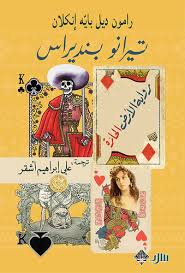
Tirano Benderas suspects Colonel Domitiano della Gondra of conspiring against him, and when he discovers a simple mistake committed by the latter, he provides the tyrant with the pretext he needs to arrest him, so he issues a secret order for his arrest, but a prostitute who can read minds knows about this, and warns the colonel. In the midst of the country's annual celebrations, Della Gondra flees and joins the rebels against the tyrant's rule. In this novel, which is considered one of the first novels written in the Spanish language about the dictator, before other writers from Latin America entered this field, “Ramon del Paye Inclán” presents a vivid depiction of the character of the tyrant, in a circular structure, full of short chapters and closed scenes that together constitute A rich text with its internal rhythm, wonderful images, and multiple linguistic levels.
-1717716843.jpeg)
In 1949, writer Helen Hanff began correspondence with a used bookstore in London, asking them to help her secure some classic books that she could not find in New York. Over the course of 20 years, letters are exchanged between her and the store’s employees, especially Frank Doyle, who secures the books and sends them to her. This correspondence begins with a request for a copy of Hazlitt’s Three Essays and gradually deepens, building a transparent human relationship between book lovers on both sides of the ocean. In the details of their personal lives on the one hand, and chronicling the history of the two countries on the other hand, it includes talk about the food crisis in Britain after rationing, the pivotal elections in both countries, the sports clubs, their social life, Frank’s family news, the development of Helen’s professional career, and even the method of making pudding.
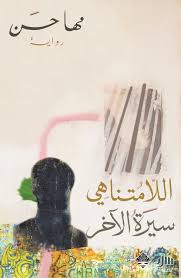
“Adham” was born multiple times, which is difficult to count. And in each of his births, he carries a different personality and another life, to the point where he can be described as multiple versions of a single human being, or to borrow what he says about himself: “I am all formulations. Open endings and closed beginnings. I am the ultimate formula. I am everyone, women and men, a part.” A masculine part in a feminine personality, and a feminine part in a masculine personality. I am the one who desires immortality. In this novel, Maha Hassan reaches the height of experimentation in writing, ignoring the rules, surrendering herself to the pleasure of storytelling, to the philosophy and philosophies of her hero, trying to write his biography in his endless births.
By Intel Squadron/Translated by: Nafie Mualla
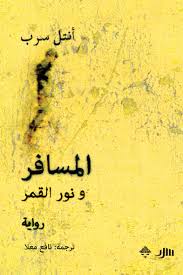
From a meeting between Mihai, who is spending his honeymoon in Italy, with an old friend, the events of this novel begin. He soon finds himself leaving his wife at a train station, and begins his own journey, searching for himself and the memories of his youth. Traveling from one city to another, Mihai experiences the anxiety of his existential questions, and meets friends of that period. He learns the reason for Tamas’ suicide, and Eva’s relationship to this incident, but what does he really want from recalling stories told by time? In this novel, which is considered one of the most prominent Hungarian novels in the modern era, which achieved great success, was translated into several languages, and was adapted for theater and cinema, the reader feels as if the author is able to penetrate his depths, and not only the depths of his characters.

John is assigned a strange mission: to investigate the truth about a rare love story in the ocean country. But he soon noticed that the country he came to had no children. Little by little, the truth is revealed to him that people are afflicted with a strange disease that is leading them to their end. The women revolt and the authorities confront them by denying the problem, and a brutal war breaks out, the smallest details of which are recorded by John in his report, while he continues to search for the alleged love story, but what will happen when he discovers the only man who has not been infected with the disease? In "The Women Who...", one character breathlessly delivers the story to the other, thus building the architecture of the novel that presents, within the folds of its strangeness, imagination, and unreality of its events, a legendary story, but it is verifiable in our real world.
/ الذاتي بعد الهزيمة (طبعة جديدة)-1717686475.jpg)
“In this book, Sadiq Al-Azm wanted to analyze the causes of the defeat and theoretically propose a response to it, before he realized that, like many others, it was a recurring defeat, not resulting from “external conspiracies,” but rather from a persistent Arab inability, shared by both the peoples and the authorities. And this defeat The recurring nature that responds to every defeat with a new defeat is what makes the book retain its relevance. The defeat whose causes were explained is still continuing, the reasons it criticized are still present, and the mentality that justifies what cannot be justified is growing, growing, and active. However, the true importance of the book is not It consists in illuminating a historical tragedy, specific to time, but rather in the free critical approach, which explains human disappointments with human causes, without referring to a vague reference.” Faisal Darraj
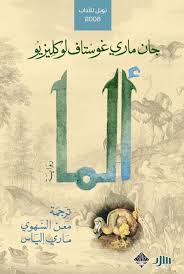
Jeremy visits the island of Mauritius, to investigate his family history, and search for the last traces of the extinct dodo bird. His journey intersects with an opposite journey undertaken by Dominic, a tramp who was born to laugh, as he says about himself. Between the two journeys, stories reproduce and multiply, and as the narrative progresses, the world of Alma is built, which modern times have transformed into “Maya Land”: a land of illusions.
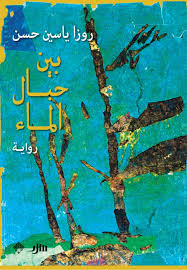
In his childhood, Tammuz watched a film about the life of a young boy, and through it he was surprised at how much cinema can convey human lives and their details: “There is someone far away who lives just like me!” Since that time, he became fond of films, and their heroes became friends with whom he lived. In his youth, he traveled to Dubai, to collect money and realize his dream of studying cinema, but he became immersed in the worlds of sex and money and moved away from his dream, until the revolution and then the war broke out in Syria, when he woke up from his nightmare and realized that hundreds of films were waiting for him in his homeland to wake them from their slumber. “Between Ropes of Water” is a novel about the love of cinema, in which Rosa Yassin Hassan combines, with a unique technique, reality with films, so that we can hardly distinguish between reality and imagination, we meet characters we loved, we read phrases we heard, and we re-draw scenes we liked...
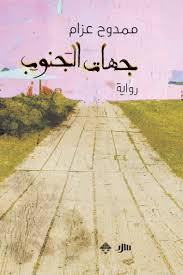
In a time when speech has no value, Younes decided to remain silent. What is the benefit of what he says when he is weak, strange, and free from the constraints of twenty-six years that he spent in a world of fear, loneliness, and near death?!! Wherever he went and wherever he moved, he was pursued by curses and oppression. Even his attempts to search for a part of his precious past with his wife and son were useless...! In his relationship with “Abu Al-Rish,” he felt some reassurance from all the alienation that nestled in his heart, but that was not enough for him to find stability and end his torment and loneliness!! The new circumstances of the country, and the changes in the government, increase his flight and confusion, despite his attachment to all the good people who surrounded him during his ordeal. “Younes” who longed for everything... nothing saved him!!
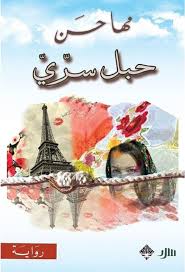
"Sophie Perrin" is a French woman who is fond of speed and hates stability. Her sadness is sudden but authentic, her desires are sudden but stem from existential anxiety, and her questions are many but they hide deep wounds. And Hanifa Kamal, the stubborn Kurdish girl, lived a miserable childhood in Aleppo, which ended in painful torture when her father was forced to choose between two wives, and the decision was to divorce her mother and move them away to a distant village. There is an “umbilical cord” connecting the two, which will only be revealed with “Paola,” who decides to travel from Paris to Aleppo. In her novel, Maha Hassan takes us to the world of the Kurds in Syria, with all its rituals, customs and traditions, highlighting their suffering in a country in which they live, but which is cruel to them. It moves between two cultures: the West and the East, and in doing so it raises the question of identity, its true component, and the question of belonging and its meaning.

In late October, a writer specializing in the lives of saints gives a lecture in a remote northern Swedish village. After the lecture ends, an old man approaches her to tell her that she will stay with him for the night. Her stay with him is prolonged due to a snow storm that cuts off the road, during which she learns more about the life of her host Hadar, who suffers from cancer, and the strange competition that links him with his brother and neighbor Ulf, who suffers from heart disease. About two brothers who share a lot in common and are linked by a tangled relationship of jealousy, rivalry, guilt, and a strange guest who becomes the engine of this relationship, Torgny Lindgren tells with dark irony in his Auguste Prize-winning novel, Sweetness, a different story about brotherhood.

Enter your address and we will specify the offer for your area.